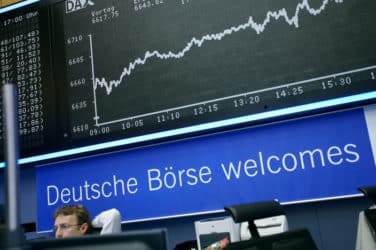
The Financial Stability Board said there are still problems with trade reporting as European exchanges plan to launch services ahead of the increased reporting requirements under the incoming MiFID II regulations.
The FSB said in a report on OTC Derivatives Market Reforms this week that 19 jurisdictions have trade reporting requirements in force for over 90% of transactions in their jurisdiction. “Authorities continue to report challenges concerning the quality and completeness of the data being reported to trade repositories and the ability to access, use and aggregate this data,” said the report.
In order to improve reporting the Committee on Payments and Market Infrastructures and the International Organization of Securities Commissions established a joint working group a year ago to harmonise OTC derivatives data such as the Unique Transaction Identifier and Unique Product Identifier. They plan to issue final guidance on UTI and UPI by the end of 2016 and on other data elements by the end of 2017.
“When this guidance is finalised and the appropriate UTI and UPI governance is in place, and once these harmonised data elements are actively used in trade reporting, these measures should significantly improve the quality and usability of TR-held data, which will help support regulators in fulfilling their mandates,” said the FSB.
Transaction reporting requirements will only increase under MiFID II. MiFID I only applied to equities but MiFID II expands reporting to other asset classes including exchange-traded funds, bonds, structured financial products and derivatives from January 2017.
In September the London Stock Exchange Group said it had agreed to build a MiFID II compliant trade reporting service with Boat Services so that customers can meet their multi-asset reporting requirements. The exchange already offers MiFID and EMIR transaction reporting through its UnaVista unit.
In the same month Deutsche Börse, the German exchange operator, and REGIS-TR, the European trade repository, also said they are launching a reporting service. REGIS-TR is jointly run by Deutsche Börse and Iberclear, part of Spanish exchange operator BME Group.
Deutsche Börse and REGIS-TR’s MiFID II transaction reporting service will allow clients to submit the relevant data (e.g. executing trader and reason for transaction) to the relevant national competent authorities. In addition the MiFID II OTC trade reporting service will allow transactions to be published in real-time and disseminated via Deutsche Börse’s data feeds.
The German exchange said in a statement that more than 250 clients are using its MiFID I service and more than 1,300 clients use REGIS-TR for Emir reporting.
“The two entities report more than 7,000,000 transactions daily in line with Emir, and 15,000,000 transactions monthly in line with MiFID I to supervisory authorities in various countries,” added Deutsche Börse. “Corresponding services for REMIT, FinfraG, Dodd Frank and Securities Finance Transaction Reporting are next in the pipeline.”
Hauke Stars, member of the Deutsche Börse executive board responsible for IT & Market Data + Services, said in a statement: “With a global solution, we enable our clients to keep their costs in check – both acquisition costs as well as the costs of adapting to additional regulatory changes.”
Featured image by S/Dollar Photo Club





